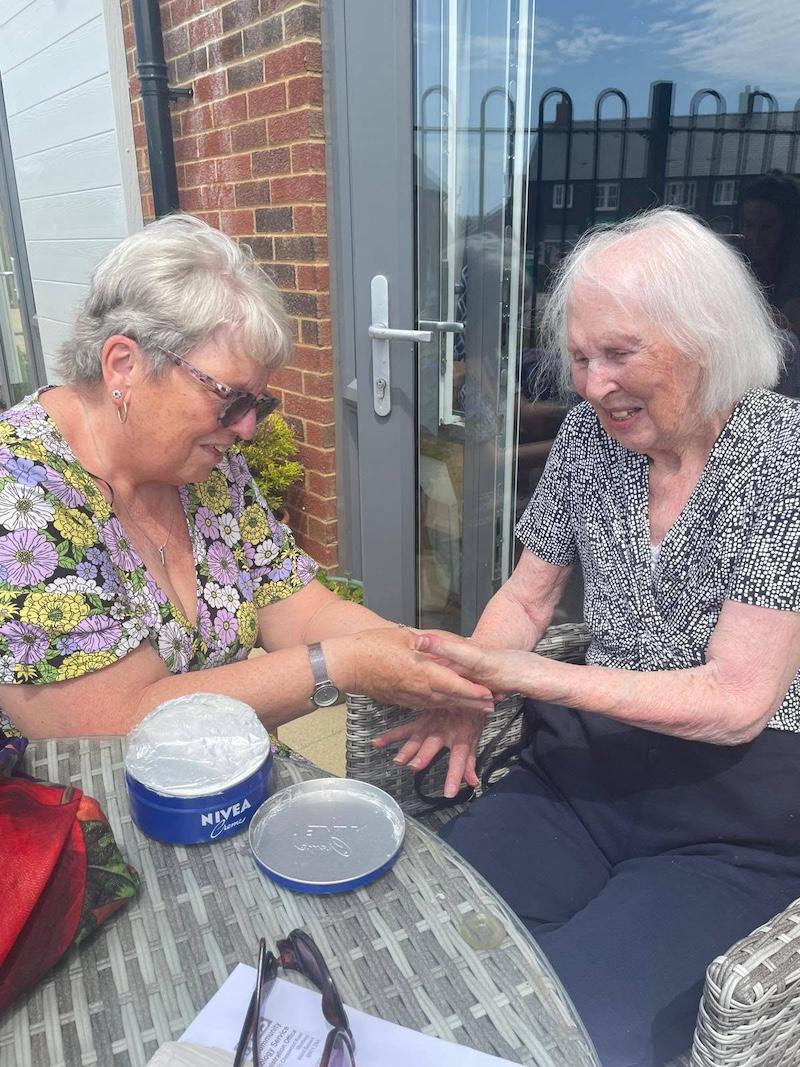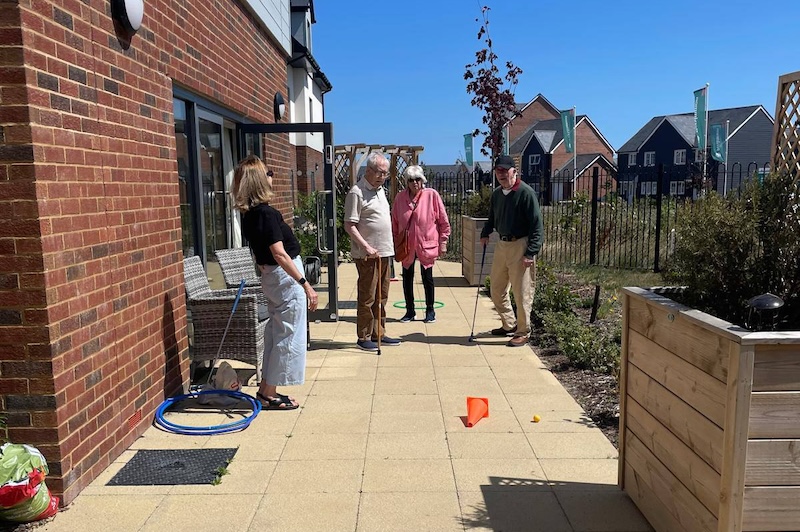What is Residential Care? – A Comprehensive Guide

We understand that making the choice to move into residential care is a difficult one, and care seekers may not know the advantages of residential care or when to consider residential care. In this blog, we explore many factors surrounding this type of care to give you a better understanding and help you make the transition as smooth as possible for both residents and loved ones.
What is Residential Care?
Residential care provides a safe and supportive environment for older people and those who may require help with everyday tasks such as washing, dressing, or taking medication but are still able to continue most of their day with independence. There is a dedicated care team on hand 24 hours a day to ensure the safety, comfort and well-being of residents.
Residential care is typically provided either in a residential setting within an all-inclusive care home or a dedicated residential care home.
What is a Residential Care Home and When To Consider Residential Care?
Deciding to move into residential care can be challenging for both the individual and their family members and isn't a quick decision to make. However, some signs can help to know when to consider residential care. This includes:
- Everyday activities such as cooking, cleaning, or personal care become increasingly difficult.
- Managing medication or mobility poses a challenge, risking health or safety.
- A loved one is experiencing mental health problems such as low-level memory loss or confusion, making it unsafe to remain alone.
- A lack of social interaction leads to feelings of loneliness or isolation.
- Safety at home is compromised due to frequent falls, accidents, or other concerns.
A residential care setting can provide the necessary extra support in a safe and welcoming environment, ensuring peace of mind for both residents and their loved ones.

What Are The Advantages of Residential Care?
There are many advantages of residential care, and to provide you with a better understanding, we have outlined our top 5 below.
24-Hour Support in a Safe and Secure Environment
Residential care is available to residents around the clock, meaning they have access to support whenever they need it. Living in a care home means that residents have everything they need in one place whilst being able to continue living independently and do the things they love. Highly qualified and friendly staff are available day and night to provide personal care and help with daily routines, ensuring residents feel secure and well looked after.
For those who require medical care, regular monitoring and attention are provided as required depending on the level of needs.
Grouped Living Alongside Like-Minded Individuals
A residential setting allows individuals to live among others of a similar age, fostering social interaction and companionship. Residents can enjoy shared experiences, engage in activities and build friendships, which can significantly reduce loneliness and improve overall well-being.
Nutritious Meals Three Times a Day
Balanced, home-cooked meals are provided three times a day in residential care by a dedicated kitchen team, ensuring residents enjoy nutritious food that supports their health and food preferences. Care homes create personalised care plans before individuals move in, which include a food passport outlining their dietary preferences and requirements.
Mealtimes also often serve as opportunities for social interaction as residents dine together, building a further sense of community.
Access to a Variety of Facilities and Activities
Many residential care homes provide access to facilities and activities designed to enhance residents’ quality of life. These could include comfortable lounges, private gardens, communal activity spaces and a hair & nail salon that each help residents feel comfortable and fulfilled in their home away from home.
Activities such as arts & crafts, gardening, or group outings promote independence, confidence and enjoyment, which allows residents to continue to live full and meaningful lives.
Peace of Mind for Loved Ones
Residential care offers peace of mind for family members, knowing their loved ones are in a safe environment where they are cared for and supported throughout all aspects of life. Staff are always available to provide assistance and respond to not only the residents’ needs but also any questions that loved ones may have regarding residents, their care services or their in-house facilities.

What is The Difference Between Residential Care and Nursing Care?
The key difference between residential care and nursing care lies in the level of medical support provided and the needs of the individual. Once there is an understanding of the core care needs of an individual, it can help families know when to consider residential care or nursing care. Residential care is designed for individuals who require help with daily tasks such as washing, dressing, and taking medication but do not have complex medical needs. In a residential care setting, staff provide essential personal care and extra support to ensure residents feel safe, comfortable, and well looked after.
Nursing care, on the other hand, is more suitable for individuals with a complex medical condition requiring ongoing medical care. This type of care involves support from a qualified nurse who is available to monitor health conditions, administer treatments, and respond to any medical emergencies. Nursing care is typically provided in a nursing home or all-inclusive care home where the facilities and staff are equipped to manage residents with higher levels of need, including those requiring frequent medical attention.
For families who are unsure whether residential care or nursing care is more appropriate for their loved one, a professional needs assessment can help to determine the best option. By understanding the level of support required, whether it is personal care in a residential home or more intensive nursing care, families can make an informed decision that ensures their loved one receives the right care to maintain their comfort, dignity, and quality of life.
How Much Does Residential Care Cost?
The cost of residential care in Selsey can vary depending on location, the services provided, and whether the individual is self-funding or supported by their local authority. Typically, fees will include accommodation, meals, and personal care.
For individuals who require assistance, a financial assessment can be arranged through the local council or authority. Funding support, such as NHS continuing healthcare or disability benefits, may be available for those who meet specific criteria.



Receive Person-Centred Residential Care at Caraway House Care Home
At Caraway House Care Home, we are dedicated to providing personalised care and support tailored to the unique needs of each resident. Our care home in Selsey offers a safe and comfortable environment where residents can enjoy a fulfilling, independent lifestyle while receiving the support they need.
In addition to residential care, we also provide comprehensive levels of dementia care, nursing care and respite care to individuals with a variety of needs. We understand that every person is different, which is why our compassionate team works closely with residents and their families to create individual care plans that promote well-being, comfort, and dignity.
Come and Visit Us at Our Care Home in Selsey
Choosing a care home is a significant decision, and we invite you to visit Caraway House Care Home in Selsey to see for yourself what we have to offer. Meet our team, tour our facilities, and experience first-hand the caring and supportive environment we provide.
We are committed to ensuring residents live happily, comfortably, and with the quality of life they deserve. Contact us today to arrange your visit or discuss how we can provide the care your loved one needs.






